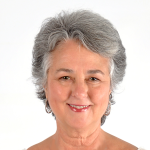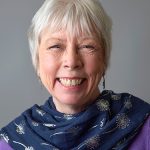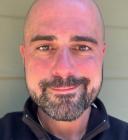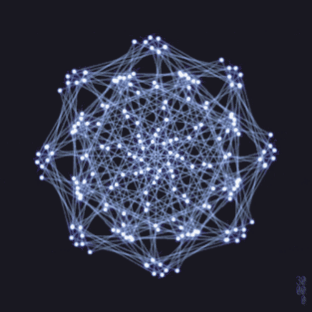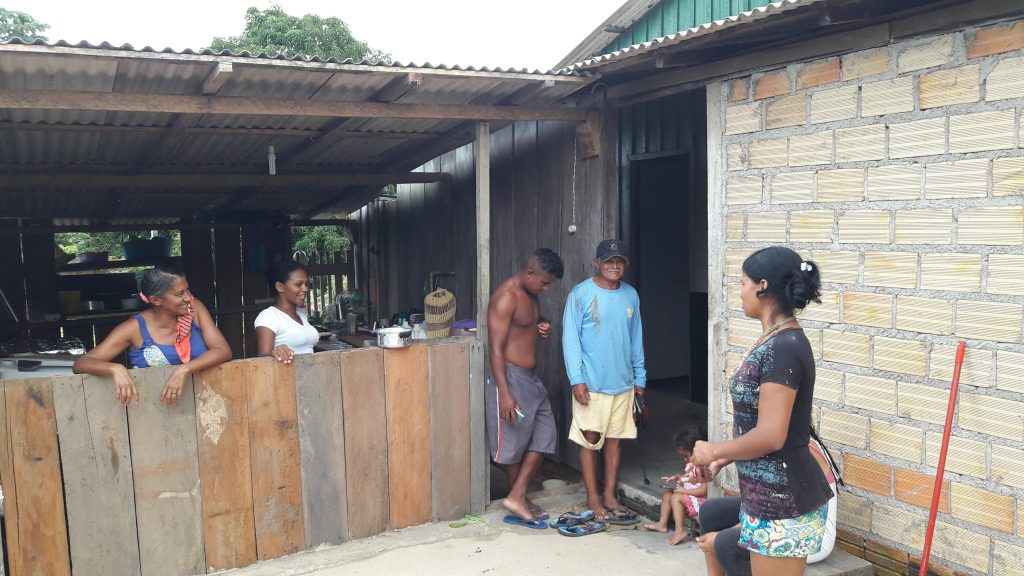From Leadership to Healership
Futures-Focused Leadership
In an era marked by interconnected and existential challenges, our definition of leadership has to radically evolve accordingly. Today’s leaders are called to go beyond traditional practices of authority and directorship and to step into roles as healers and servant leaders—individuals who nurture wholeness in an increasingly fragmented world and who foster resilience through groundedness and self-awareness in service to the good of the whole. To lead well is no longer just about guiding others; it is about working from the inside out as a steward of humanity’s collective and consciously evolving future.
This article explores how futures-focused leadership—rooted in healing and in recognition of our universal interconnectedness and interdependence—can empower us to be healers and good ancestors for generations to come.

Leadership Rooted in Wholeness
The most profound leadership begins with understanding our unitive reality. Scientific advancements now affirm what ancient wisdom traditions have long emphasized: existence is fundamentally interconnected. The matter and energy shaping our world are intricately woven into the fabric of space and time, forming an indivisible whole.
For leaders, this truth carries a transformative implication. To lead effectively is to embrace the role of a healer—someone who now helps mend the divisions of a prevailing mindset of separation and reconnect individuals, systems, and institutions to their inherent wholeness and emergent potential. In its etymology, the word “heal” means “to make whole,” offering a guiding principle for leadership in the 21st century. By embodying this ethos, leaders can create spaces where individuals and communities rediscover inner peace and a deeply felt sense of belonging within the broader web of universal and planetary life.
The Call to Healer-Leadership
Future generations, who will inherit the consequences of how we handle our responsibilities and the outcomes of our choices, need us to reimagine leadership. The required shift from leadership to healership invites us to anchor our actions in three foundational principles inspired by timeless wisdom:
Recognize our true nature. Leadership begins with self-awareness. Recognizing our role within the larger context of the unitive nature of existence enables us to attune to and align with our greater good and to act coherently from a place of authenticity and alignment.
Commit to the truth of our existential unity. This involves elevating individual and collective consciousness about the interconnectedness of all living beings, an innate interdependence that has been empirically validated with evidence-based science at all scales of existence. It includes facilitating a process of unlearning the myth of separation so that the healing from its scourge can begin. These times call for leaders, with humility and in service to the good of the whole, to commit to living in harmony with the universal principles of interdependence and reciprocity, and to ensure their actions reflect and embody these values.
Trust the process of unfolding. Healing is not instantaneous; it is a journey. Leaders must embrace transformation as an ongoing process and trust in the capacity for renewal, regeneration and emergent potential.
Embrace both the being and the doing. Facilitating healing includes repairing the disconnect between being and doing by actively integrating both modalities as an expression of a single coherent whole. Legacy leaders will help us transcend our historic bias toward placing greater value on doing by establishing new, higher, and more accurate valuations on also attending to our beingness.
Healing also entails creating a safe space for coming to terms with the painful legacies of historical wounds by way of intergenerational inquiry into the past. Drama, story telling, deep spiritual reflections and expressive art are some of the approaches that can be used to achieve healing of those wounds and restoration of wholeness. Such approaches should recognise past achievements and enduring values, attend to hospicing what no longer serves our collective whole-being, and commit to taking the best of the past with us as we move forward together.
Healer-leaders do not just guide—they inspire and empower others to awaken to their potential and to nurture transformation within their communities. This leadership model fosters relational safety and security, creating the fertile ground needed for widespread healing. The seeds of the future are dependent on that ground and leaders are accountable for the fruits of those seeds.
Principles of Good Healership
The practice of good healership must be guided by the following principles:
Aligned Action. All decisions must reflect harmony and be in resonance with the natural rhythms of life. Actions that ignore this alignment, as in the past, continue to risk long-term harm to individuals, communities and ecosystems.
Honored Agency. Acknowledging both the autonomy and the interdependent agency of all beings and systems is essential. Leadership based on collaboration, rather than control, fosters innovation, mutual respect and the cultural conditions for best outcomes.
Right Relationship. Relationships grounded in care, intentionality, reciprocity and equanimity provide the foundation for flourishing communities. These connections are not transactional but transformative, not prescriptive but emergent.
Relational Resilience. By integrating aligned action, honored agency, and right relationships, leaders can cultivate resilient cultures where trust, safety, and shared emergence support the thriving of all species.
Becoming a Co-Steward of Tomorrow
To lead today is to embrace the profound responsibility of ensuring a flourishing future. This is not a task for the faint-hearted; it requires courage, humility, and an unwavering commitment to ongoing radical self-development and radical collaboration in service to the greater good. Every choice we make—every policy implemented, every conversation held—plants seeds for future generations.
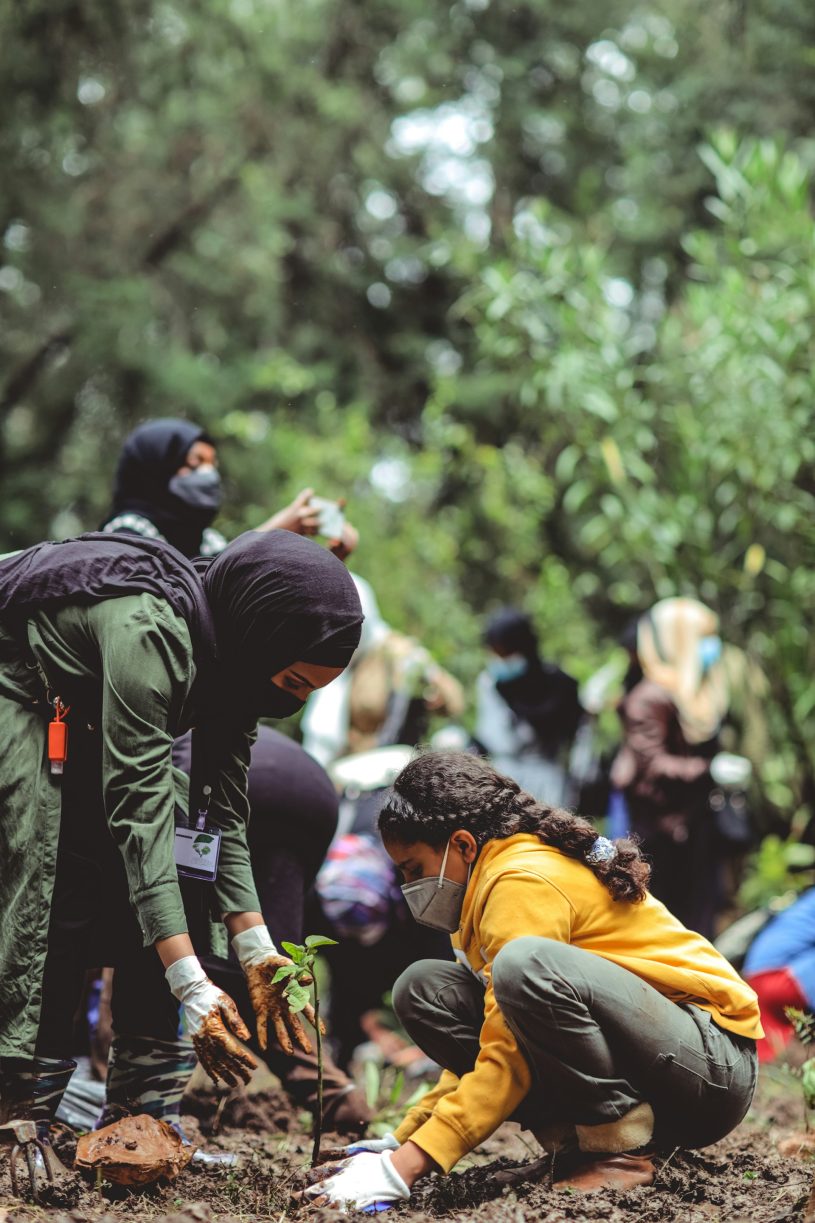
By weaving healing into leadership, we can nurture resilient and collaborative ecosystems. Taking a transformative leadership approach empowers humanity to meet its challenges from the basis of unity and common purpose. In doing so, we lay the foundation for a world where human and planetary life flourishes—not just for us, but for all those yet to come.
In these liminal times, when the old paradigm of leadership is becoming obsolete and the new one is yet to take hold, leaders today have the unprecedented opportunity to not just impact the world today, but to set a more vibrant course for ages to come. Leaders are called to move beyond being role models, to becoming soul models of healership by embodying what it truly means to be a good ancestor who leaves a legacy of wellbeing, love, and vitality for future generations.
Message from the Children of Earth’s Tomorrow
This video was created for the 2024 Nova Annual Conference, themed “New Horizons: Toward an Era of Global Flourishing”, held on December 5, 2024.
How to Be a Good Ancestor in Support of the UN Declaration on Future Generations (via: IPI Global Observatory)
In essence, the Declaration encourages present-day decision-makers at the national and international levels to be good ancestors to those that follow. Much has been written about how to be a good ancestor and how to lead a life with many generations down the line in mind.
Good ancestors tend to systematically concern themselves with rendering selfless services to generations they will never know. They are keen to ensure that the choices they make today don’t bequeath to the unborn strangers of the future the burdens that their own ancestors’ choices saddled them with. In so doing, they take responsibility for undoing their ancestors’ mistakes. They endeavor not to colonize the future by exporting to it systems and paradigms that are at the origin of many of the ills afflicting humanity and the planet in the present. Among these are economic orthodoxies that justify stealing the future in order to sell it in the present in pursuit of divine profit. They also ensure that the future is not saddled with patriarchal and hierarchal norms and structures that perpetuate oppression and exploitation across various spheres of life. Just as they need to ensure that current technological advances and online spaces do not knowingly erode the mental health of children who are the youngest living ancestors to future generations.
Striving to prioritize the well-being of future generations may sound utopic for people laboring under the tyranny of the urgent. It may even be perceived as a reckless prescription by those who stand to lose from letting go of the very systems and structures that sustain their vested interests.
The above notwithstanding, some UN entities such as the United Nations Development Programme (UNDP) and the UN agency on human rights (UNHCR) have embraced anticipatory, long-term thinking to build just futures for all. Organizations such as the Elders have also called for long-view leadership that delivers solutions to both current and future generations.
Additional Pathways to Develop Good Ancestorship
Good ancestorship is not an end in itself—it is a process of exercising leadership in times of radical uncertainty. It is not the sole preserve of older generations. It is intergenerational. If properly nurtured through intentional, unitive practices, it could become an overarching framework towards operationalizing some of the principles and commitments of the UN Declaration on Future Generations.
In addition to developing a legacy mindset and long-term governance skills, aspiring trustees of generations to come could benefit from considering the following additional values, insights, qualities and actions. Some of these have been outlined above and can be found in the constituent text of the civil society-led ImPACT Coalition for Future Generations. Others are enshrined in the wellbeing of future generations Act in Wales which established a statutory Future Generations Commissioner for Wales, whose role is to act as a guardian for the interests of future generations in Wales. Still others may be on the agenda of the soon-to-be appointed UN Envoy for Future Generations who will probably be encouraged to draw inspiration from the work of the UN Futures Lab Network.
Cultivate a longer “now”
A longer now involves reframing our relationship to time and recognizing that the precise moment we’re in grows out of the past and is a seed for the future. A “now” for the long-term mindset involves abandoning the tyranny of the present over the future and reframing time as a continuous, interconnected experience rather than a linear progression. Seen through this longer term lens, the future is imagined as an intergenerational, common public good which encourages and empowers us to extend our empathy to the lives of seven generations down the line. Cultivating a longer now also allows good ancestors to live and work on the leading edges of systems rather than in the center where they risk being coopted and thus distracted from articulating and acting on what we owe the generations of the future.
Build futures literacy skills
Disrupting our linear understanding of the present as a way of exercising good ancestorship is more than a mindset. It is a skill that could be developed through Futures Thinking training and development. Futures thinking is not about predicting the future for the purpose of planning and adaptation. It is about leveraging the potential of alternative and emergent futures as a means of expanding what can be done in the present to fashion a world for future generations to thrive.
Weave ecological consciousness
Future generations are granted no political rights or representation. They are not here to protest the burning of fossil fuels or the poisoning of oceans. Good ancestors need to ensure that future generations inherit a world where the balance between human activity and planetary health is restored and enriched. The current generation will not have peace unless they declare Earth resources already under severe threats as common inheritance to all peoples present and future.
Empower change
Moving from “what if” to “what must be” inspires communities to move beyond hypothetical scenarios by rooting them in the emergent present. It entails envisioning a future that inspires and empowers people to transcend limiting beliefs. It also entails supporting intergenerational learning and nurturing innovations in the present that drive meaningful societal change for the benefit of those inheriting the future.
Exercise steward leadership
This requires understanding that a leader’s power is derived from their constituents, in service to them. Guarding against using entrusted power to dominate is critical. Entrusted power pulls into focus ethical decision-making and positive long-term impact. Steward leadership promotes transparency, sustainability, and wholistic well-being, co-creating a just and equitable world for future generations.
Build a meaningful relationship with our elders
There is an abundance of wisdom available to us if we are willing to listen or ask. Taking the time to learn from those who have experienced this world many times over will help the current generation avoid perpetuating the errors of their ancestors. The wisdom of indigenous elders in particular can help us put into perspective the existential dilemmas facing humanity in these times of radical disruptions and potential pathways to regeneration.
Transcend the illusion of separation
Recognize that humanity is under the spell of the collective dis-ease or disharmony that the scourge of separation has left in its wake. The long-held belief in separation has created divides within ourselves and between us and Nature. This outdated and unsustainable mindset based on scarcity and extractive pathologies cannot serve as a foundation for building a prosperous future for all. An evolutionary leap towards a realization of unity and interconnectedness is therefore vital for nurturing actions that enable the crossing of thresholds from a stressed present at the end of its tether towards an emergent future fit for those not yet born.
Heal multi-generational trauma
As good ancestors, we need to heal the multigenerational legacies of traumas caused by ongoing wars and by historical wrongs that have decimated peoples and desecrated their lands.
This involves establishing safe spaces where blame and shame can be honestly expressed and met with compassion and reconciliation. These are spaces where intergenerational communities across genders engage in restorative practices to “re-pair” what has been “dis-repaired” and pave the way for the emergence of a world built on forgiveness, empathy, and resilience. Making peace with past hurts and composting with humility their painful legacies can be harnessed as additional components of any futures-oriented learning experiences that put a premium on relational and communal well-being across generations.
Join forces with others
Joining forces with like-minded and like-hearted planetary citizens committed to creating a thriving, regenerative world is critical. This is more so in periods of “national egocentrism.” When they coalesce across generations, these citizens catalyze authentic hope and enact transformative change, ensuring a vibrant future for generations to come.
A Final Encouragement
The above suggestions are offered as mere pointers for those who, regardless of age and gender, wish to lead from the future that unborn generations deserve. Should they lose their way, this message from the children of Earth’s tomorrow (on the left) is offered as an additional compass for the journey of hope ahead of us.


